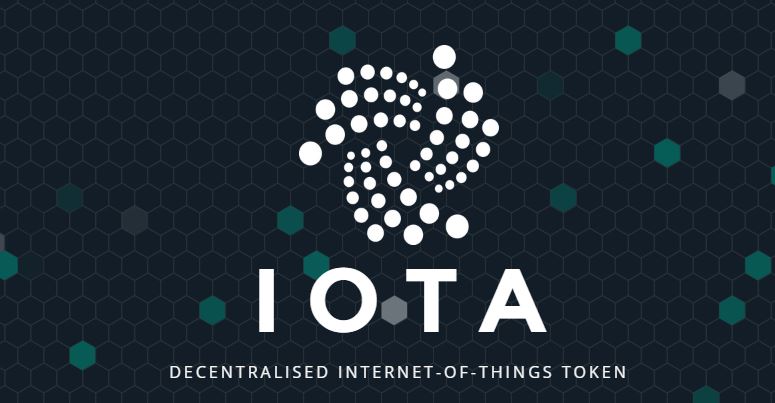IOTA is a Decentralized Internet-of-Things Token, it advertises itself as the fuel for the IoT growing economy, IOTA It’s built on top of an innovation called ‘Tangle’, which replaces the concept of a regular blockchain. Transactions are completely free and the platform is ‘Quantum Secure’.
IOTA is a new Cryptocurrency token focused on providing an infrastructure suitable to carry out micro-transactions for the Internet-of-Things ecosystem, in order to do this, the project features a brand new consensus mechanism called Tangle.

The Tangle is a Directed Acyclic Graph (DAG) designed to keep tabs on the transactions. When a node in the network wants to make a new transaction it must validate and approve the previous two, as a consequence, the network security is achieved by the same users of the platform. The main goal is to have a lightweight network that allows Internet-of-Things devices to freely transact with one another. According to IOTA’s team:
The number of connected devices that will permeate our modern landscape in the coming decade is estimated to be 50 billion(!) Each of these are designed to make the world a better and more seamless place for us. Tied to this fantastic promise are of course a ton of obstacles to be overcome, of which one major one is micro-transactions.
We talked to David Sønstebø Co-Founder of IOTA, David is a futurist who believes that technology is the best way to improve the world from an effective altruist point of view, below is a series of questions I asked David through an email-based interview:
1- According to the official statement, IOTA goal is to create a lightweight cryptocurrency, how does the project achieve this?
Indeed, the role of IOTA is to be the ‘Ledger of Things’ that fuels the ‘Economy of Things’. Up until this point all the distributed ledgers thus far have been copying Bitcoin’s blockchain structure which requires fees, got problems with scaling and flexibility, IOTA is different. We get rid of the blocks entirely and instead invented a new architecture based on Directed Acyclic Graph which we call ‘Tangle’. I’ll get into more detail of how it works afterwards, but in short it allows us to get rid of fees and also opens up a completely new scale and flexibility that regular blockchains cannot accomodate.
2- IOTA has been advertised as a platform capable of collaborating with other Blockchain projects, and in the Bitcointalk thread you specified that IOTA can act as an Oracle, How will it do this?
IOTA was engineered to be lightweight without additional features that require a lot of overhead (like Turing Complete Smart Contracts). IoT will have a lot more devices from a numbers perspective that need to settle transactions and data transfer than execution of Smart Contracts, and these devices will be very infrastructure and resource constrained and thus need something lightweight; IOTA. However, there’s also this grand ecosystem emerging that utilizes Smart Contracts, so IOTA’s role in this space is to act as an oracle (due to intrinstic data transfer properties of the IOTA ledger). This is why we’re working with smart contract platforms to optimize exactly this. We believe that there is no ‘universal solution’ to all the problems that ledgers can solve, and thus interoperability is required, much like it is in IoT.
IOTA is the first payment system, not just among crypto platforms, but in the digital world, that is entirely without any fees whatsoever. This is the key that opens up new doors to previously impossible services that require true micro-transactions. In the emerging Internet-of-Things ecosystem we will see machines be both prosumers and consumers of technological resources. It is these technological resources that the Internet-of-Things is all about; whether it is data, storage, computational power, bandwidth, electricity or any other utility. Being able to trade these in real-time at exact amounts is a game changer.
No, IOTA is designed to be as lightweight as possible. Turing Completeness adds a lot of complexity that is just superfluous and a huge hinderance for most IoT devices. This goes back to IOTA being interoperable with other smart-contract platforms like Ethereum. Smart Contracts has a role to play in IoT for sure, but not for most devices which couldn’t even dream of executing them.
It has zero fees, so it can be as small as physically possible.
No. IOTA has no mining. The network is self-sustaining, another unique feature of the Tangle. In IOTA the verification of transactions is not decoupled from the network as is the case in PoW/PoS blockchains, rather you verify previous tx when you send a transaction, so everyone is equally compensating and being compensated by being able to use the network.
We started work on IOTA late summer 2015, then held our crowdfunding sale at the end of 2015 and been in beta since January. The current roadmap is primarily focused on the official launch is projected to be early June. We invite everyone to join the last stages of the IOTA beta. We’ll also soon be announcing some very exciting big partnerships that will kickstart the IOTA ‘economy of things’ as well as the official release date, so stay tuned!
Apple users can now download the app of The Merkle in the App Store!
If you liked this article follow us on twitter @themerklenews and make sure to subscribe to our newsletter to receive the latest bitcoin and altcoin price analysis and the latest cryptocurrency news.

